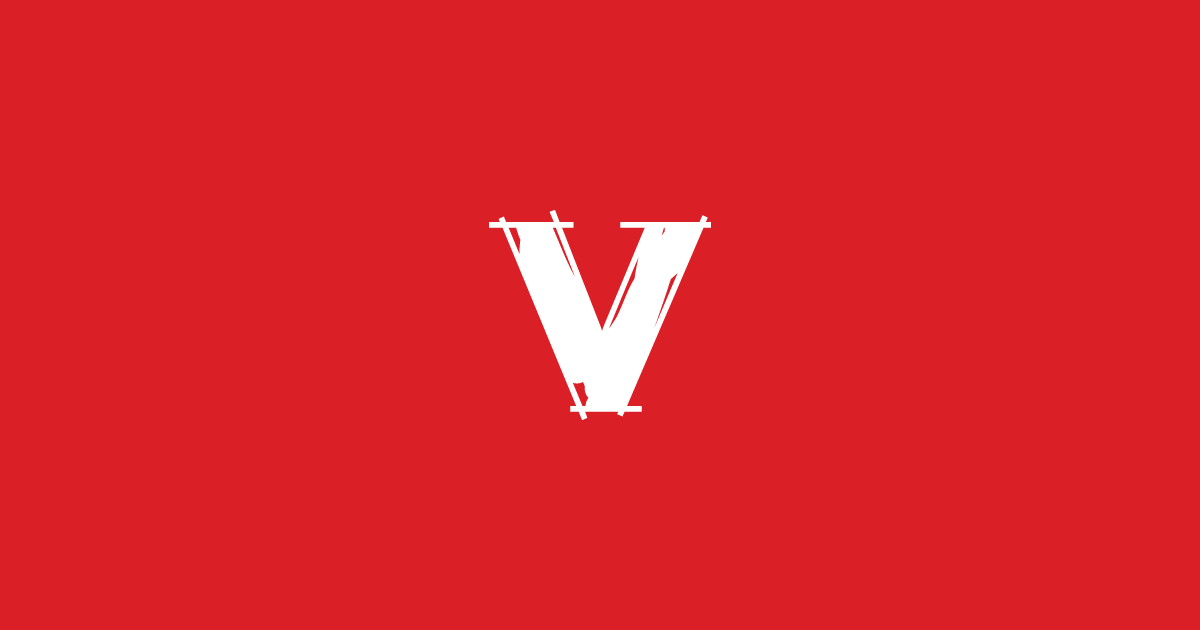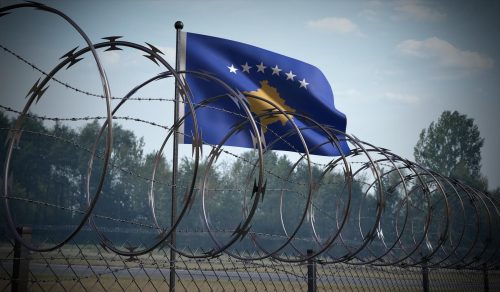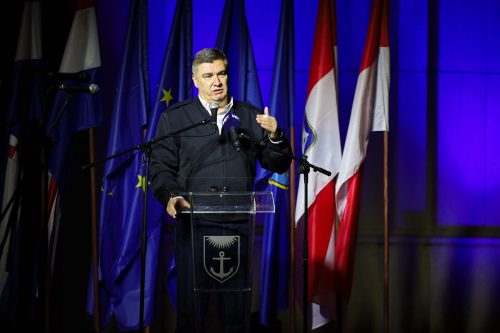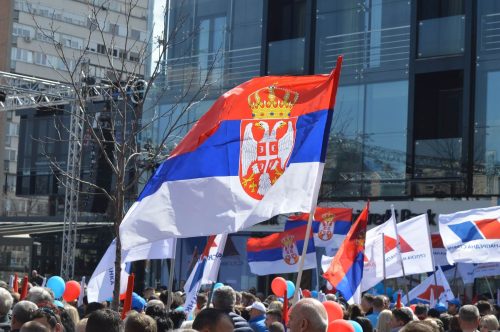Kosovo

Almost all the political parties in Kosovo exhibit some of the most significant symptoms of populism blended with nationalist, identity-based views. The LVV leaders, for instance, often claim that the country has long been ruled by a group of “corrupt elites” within governing body, which gives prominence to their own interests and to foreign actors who help them to cling to power.
Located in South-eastern Europe, Kosovo, officially the Republic of Kosovo, is a sovereign state officially recognized by 98 member states of the United Nations. Following its declaration of independence from Serbia on February 17, 2008, Kosovo secured the recognition of a total of 113 UN states, including all of its immediate neighbours, except Serbia. Fifteen of those, however, later withdrew their recognitions over various reasons. Today, while Kosovo is a member of several key international institutions such as the World Bank and the International Monetary Fund, several major states, including China and Russia, still refuse to establish diplomatic relations with the country. In addition to partial international recognition, Kosovar authorities also face strong challenge to the state’s independence from the Serb minority in the country (EFDS, 2020). Indeed, the Serb List (SL), the dominant Serb party in Kosovar politics, is today considered the most significant populist threat to further integration.
Founded in 2014 by Aleksandar Jablanović, the SL is currently led by Goran Rakić, who capitalizes on identity politics and political division in favour of the Serbian community. The SL is considered a Serb minority party with soft Euroscepticism—that Kosovo’s “national interest” is currently at odds with the EU’s trajectory. Soon after it was established, the party secured 5.20 percent of total votes in the 2014 Kosovan parliamentary elections and won nine out of ten of Assembly seats reserved for the Serbian community. In the 2019 election, its share rose to 6.61 percent of total votes, and the SL secured all ten of the reserved seats at the Assembly. Since day one, the SL has regularly taken part in all the coalition governments in the country. Since June 2020, the party leader, Rakić, has held the position of Deputy Prime Minister and the Minister of Administration and Local Government in the Hoti cabinet.
Founded in 2005 out of a political group named Kosova Action Network (KAN) that championed direct political participation, the Lëvizja Vetëvendosje, LVV (Self-determination Movement) is another political party worthy of mention. While the LVV is admittedly not a purely populist party, it exhibits some of the most significant symptoms of populism, including an anti-establishment pledge in favour of Kosovo Albanians’ right to unconditional self-determination. Party officials define the LVV as “a political movement organized according to the principles of civic activism and public inclusion in political decision-making and faithful to the founding principles of democracy, by which state sovereignty derives from the people and belongs only to them” (Vetëvendosje, 2014).
In simpler words, the LVV is a mass movement that has found its roots in street protests. With its almost 37,000 officially registered members, the party is the largest representative of left-wing Albanian nationalism and Kosovo–Albania unionism. The party also has elements of direct democracy in favour of a welfare state for true citizens of the country (Visoka, 2011). The party program therefore mostly revolves around three major populist promises: meritocracy, and the developmental state and welfare state (Yabancı, 2015).
The LVV’s leaders often claim that the country has long been ruled by a group of “corrupt elites,” who promote their own interests and those of foreign actors who help them cling to power (Yabancı, 2015). The anti-establishment LVV believes that the existing system in the country is “illegal and illegitimate,” and the monopoly of these elites needs to be broken(Vetëvendosje, 2014). Unsurprisingly, the LVV’s political agenda is constructed on populist pledges such as ending the corrupt rule of the elites in favour of the interests of the true people (Yabancı, 2015).
Almost five years after its establishment, the LVV participated in the 2010 general elections as a “citizens” initiative and secured 12.69 percent of total votes as well as 12 seats in parliament. In the 2014 elections, the party enjoyed a slight increase in its share of votes with 13.59 percent and 16 out of 120 seats in parliament. The 2015 elections also brought rewarding results for the party, when it won over 27 percent of total votes. To the surprise of many, the LVV made its greatest showing in the 2021 parliamentary elections, in which it secured 50.28 percent of the total votes and formed a coalition government with following the political parties: Guxo, Serb List, New Democratic Initiative of Kosovo, Turkish Democratic Party of Kosovo and New Democratic Party. The party’s leader, Albin Kurti, was confirmed as Prime Minister of Kosovo on March 22, 2021.
Akin to the two political parties examined above, several others in the country exhibit some of the most significant symptoms of populism blended with nationalist, identity-based views. The Democratic Party of Kosovo, or PDK, is known for its national and social conservatism as well as its capitalization on Kosovo–Albania unionism (Zulfaj, et al, 2008). It is, therefore, often referred to as a centre to right-wing populist party. Some of the leading party executives, including Rustem Mustafa and Latif Gashi, were convicted in 2015 of war crimes (Reuters, 2009), while many others within the party hierarchy were charged or convicted of abuse of office and other criminal activities. As of 2021, PDK holds a total of 19 seats in the national parliament.
In terms of civil liberties, Kosovo is a partly-free country (Freedom House). Although Kosovar people enjoy regular and multiparty elections, the system is dominated by sharply circumscribed, intransigent political blocs that champion hard-core nationalist and populist views to appeal to their own communities. While the elections are widely considered free and fair, the country’s week institutions leave Kosova open to rampant corruption as well as malpractice even at the highest levels of the government.
In addition to the poor record of political rights, the country also scores relatively low in many categories such as personal freedoms, same-sex relationships, and religious liberties. While the new Constitution openly bans discrimination based on sexual orientation, acceptance of homosexuality remains sharply superficial in the country. The relative improvement in LGBTQ+ rights in recent years, however, should be noted. In 2016, the first-ever gay pride parade was held in Pristina. In 2020, the government announced that the new Civil Code was designed to allow for same-sex civil partnerships (BNE News, 2020).
Among the greatest issues in the country is corruption. According to the Transparency International’s 2017 Corruption Perception Index, Kosovo ranks 85th out of 180 countries; public institutions like the police and judiciary are regarded as corrupt and poorly functioning (Transparency International, 2017). However, despite the widespread corruption, the anti-establishment feature of populism takes a back seat in mainstream Kosovar politics, mostly because populism in the country is heavily dominated by ethnic nationalism.
July 7, 2021
References
— (2009). “Kosovo jails 3 ex-fighters for 1998-99 war crimes.” Reuters. October 2, 2009. reuters.com/article/idUSBYT234490 (accessed on June 30, 2021).
— (2012). “Response to US Ambassador, Tracey Ann Jacobson.” Vetëvendosje. December 11, 2012.
— (2014). “A Vetevendosje Government Anti-Corruption Plan.” Vetëvendosje. Newsletter 407. May 16, 2014.
— (2018). “Corruption Perception Index 2017.” Transparency International. February 21, 2018.
— (2020). “Freedom in the World 2020 Narrative Report for Kosovo.” Freedom House. https://freedomhouse.org/country/kosovo/freedom-world/2020 (accessed on June 30, 2021).
— (2020). “Kosovo.” European Forum for Democracy and Solidarity, EFDS. https://www.europeanforum.net/countries/kosovo (accessed on June 30, 2021).
— (2020.) “Kosovo’s new civil code opens the way for gay marriage.” BNE news. July 8, 2020. https://www.intellinews.com/kosovo-s-new-civil-code-opens-the-way-for-gay-marriage-187099/ (accessed on June 30, 2021).
Visoka, Gezim. (2011). “International Governance and Local Resistance in Kosovo: The Thin Line between Ethical, Emancipatory and Exclusionary Politics.” Irish Studies in International Affairs. 22.
Yabancı, Bilge. (2015). “Populism and Anti-Establishment Politics in Kosovo: A Case Study of Lëvizja Vetëvendosje.”Contemporary Southeastern Europe. 3/2: 17-43.
Zulfaj, Jeton; Mulliqi, Brikena; Shala, Mentor; Tahiri, Petrit. (2008). “Political Parties in Kosova – Profile and Ideology.”Çelnaja. April 15, 2008.







